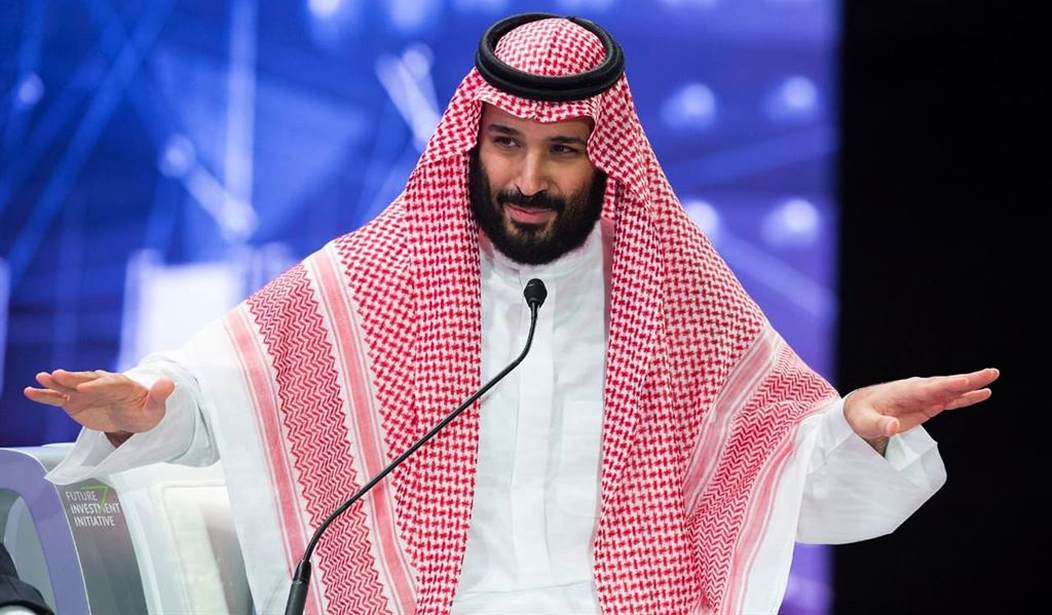At first glance, the announcement that came out of Saudi Arabia last night seemed rather startling and potentially hopeful. Officials from the Kingdom told reporters that they will soon be hosting a peace summit on behalf of Ukraine with representatives from a diverse group of nations in attendance. Given the Saudis’ alliance with Russia and Iran, such a plan might have a chance of influencing the Kremlin and moving the war closer to an end. Ukraine is ready to take part in the summit, as are multiple countries from Africa and South America. But the prospects for success likely won’t seem quite as bright when you notice that one country will be noticeably absent from the event. Russia is not going to participate. (Associated Press)
Saudi Arabia will host a Ukrainian-organized peace summit in early August seeking to find a way to start negotiations over Russia’s war on the country, an official said Saturday night. The kingdom and Kyiv did not immediately acknowledge the planned talks.
The summit will be held in the Red Sea port city of Jeddah, said the official, who spoke on condition of anonymity as no authorization had been given to publicly discuss the summit.
Those taking part in the summit will include Ukraine, as well as Brazil, India, South Africa and several other countries, the official said. A high-level official from U.S. President Joe Biden’s administration also is expected to attend, the official said.
The lack of Russian participation may not make this an entirely pointless endeavor. Clearly, the summit won’t result in any type of official ceasefire without the Kremlin being there to agree and enforce the result. But having Russia’s allies talking to and coordinating with “the enemy” might give Putin pause and create cracks in his alliance.
More importantly, some of the countries that will be participating are among those who have thus far stayed on the sidelines in the entire Ukrainian affair. Keep in mind that many African and South American countries have voted “present” almost every time the United Nations has considered various sanctions and condemnations against Russia because of the invasion. South Africa in particular has chosen to keep their options open, engaging with both Russia and NATO allies to forward their own interests.
But that situation changed last week after a very significant development. When Russia nixed the Ukrainian grain export agreement and threatened grain transports in the Black Sea, that put the African food supply chain at risk at a time when South Africa and neighboring nations are already facing shortages. And these developments are taking place only days after a summit between African leaders and Vladimir Put to discuss grain shipments collapsed without an agreement being reached. (AP)
African leaders are leaving two days of meetings with Russian President Vladimir Putin with little to show for their requests to resume a deal that kept grain flowing from Ukraine and to find a path to end the war there.
Putin in a press conference late Saturday following the Russia-Africa summit said Russia’s termination of the grain deal earlier this month caused a rise in grain prices that benefits Russian companies. He added that Moscow would share some of those revenues with the “poorest nations.”
Putin reportedly offered to start shipping 25,000 to 50,000 tons of Russian grain for free to six African nations in the coming months. While they seemed to appreciate the gesture, it’s a minuscule amount compared to what they currently receive from the U.N. World Food Program, largely from Ukraine, which adds up to hundreds of thousands of tons. Also, participation in the summit was down significantly from previous meetings. Less than 20 of Africa’s 54 heads of state met with Putin last week. During a previous meeting in 2019, 43 attended. So relations appear to be cooling as a result of the invasion of Ukraine.
If the situation had remained purely political, Africa could easily have remained on the sidelines much the same way that many Arab states have done. But once Putin endangered their food supply, the formula changed rapidly. Ending the grain export deal could turn out to be the most crucial mistake that Vladimir Putin has made in the entire war.








Join the conversation as a VIP Member